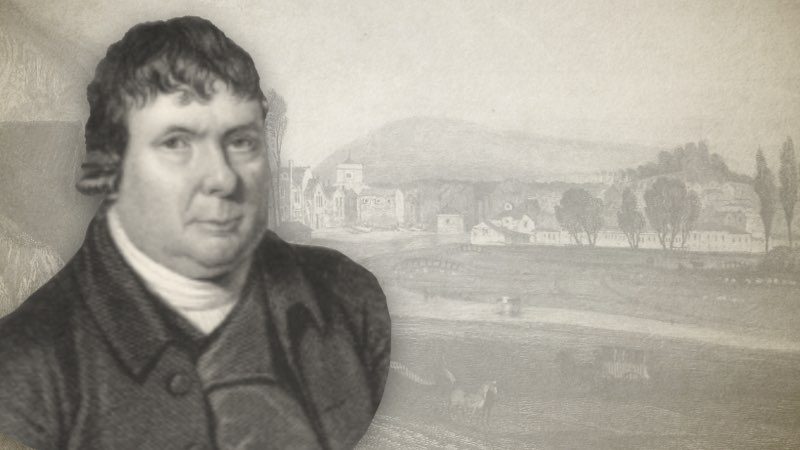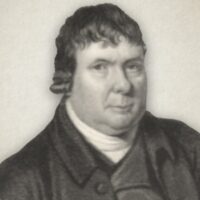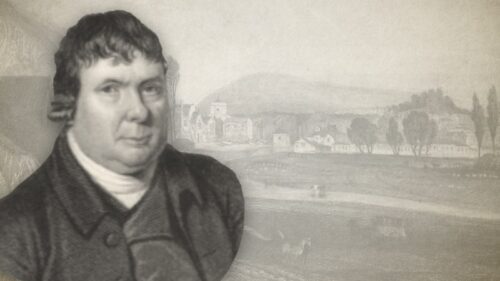
The Life And Influence Of William Huntington
Earthen Vessel 1913:
One hundred years ago, on the 1st July 1813, the redeemed spirit of William Huntington was called to the realms of peace and love.
“In vain the fancy strives to paint
The moment after death”;
But one can imagine the joy with which his tempest-tossed soul entered into the “rest which remaineth for the people of God.” He had been a man of war all his life. He was born in penury and in the midst of family strife; his childhood and youth were spent in a perpetual fight for a bare subsistence; after his call by grace he was at war with the world, the flesh, and the devil; and it is difficult to say which of these three was the greatest enemy. Moreover, his ministerial life was constant warfare with those who opposed the truths that he preached. But, in spite of many infirmities of the flesh, he, by the grace of God, fought a good fight, finished his course, kept the faith, and thenceforth he enjoys the crown of life that fadeth not away.
In this, the hundredth year since his death, it has been thought fitting that some attempt should be made by those who love his memory to make special reference to his life and work. To this end it is hoped that on Tuesday, 1st July, or on the Lord’s-day previous, the ministers of free grace Causes will take the opportunity of making some reference to him and reminding the present generation of his championship of the truths which are most surely believed among them.
Besides references from the pulpit it is hoped that the “Bank of Faith” will be republished, and possibly other works of his, and widely circulated, in order that many who have little acquaintance with his writings may learn what manner of man he was.
Objection has been made by some that there may be an undue glorifying of the creature in these proceedings. That is not the intention of the originators of the movement, but rather to magnify the grace of God which was in him.
The Holy Spirit has devoted a whole chapter of the Bible to an account of the deeds of departed worthies, sixteen of whom are mentioned by name, and it is written of them that they “obtained a good report through faith.” It is the prayer of those who have initiated this movement that the same Spirit who moved the writer of the 11th chapter of the Epistle to the Hebrews may guide and direct all who take part in this effort to glorify the grace of God by giving a ”good report” of William Huntington; and that the result may tend to the encouragement, comfort, instruction and edification of the Lord’s elect and redeemed family.
Next month, the Editor permitting, we will write a short account of Huntington and his work.
[We have received the above from our esteemed friend Mr. Joseph Look, of the Grove, Camberwell, and are glad of the opportunity of bearing our testimony to the memory of such a servant of Christ as William Huntington. We trust the anticipated centenary services will be in every way successful and the desire of the promoters fully realized. While as disciples of Christ we own no man master, we gratefully recognize our Lord has raised up many servants of His to be very signally leaders of others in the defense of the faith. One essential in such a leader is that he be led of no man, and this characteristic was manifest in W. H., in the following incident we cull from “Apples of Gold,” which we review this month. “He (W. H.) was one day passing through a churchyard and saw a stone with these lines upon it:—‘Where I am now
You soon must be;
Prepare for death,
And follow me.’
Though the warning was good, the preacher thought it was not quite sufficient. He stooped down and wrote beneath the verse in pencil:—
‘To follow you, is that the cry?
And not to know the reason why?
To follow you I’m not content,
Unless I know which way you went.’”
We shall hail with much pleasure a cheap reprint of “The Bank of Faith” as a fitting memorial of the great author. Why not reprint many others also from the same pen? Such good “salt” may be serviceable in the religious purification of today.—Editor]
William Huntington (1745-1813) was an English Calvinist preacher and prolific writer. His influence spread across the country and denominational lines. John Hazelton wrote of him—
“He published one hundred books, large and small, and once mentions being "weary at night, after having been hard at writing for fifteen hours during the day." Henry Cole wrote of him—‘’It may be asked why in my ministration, such as it is, I make frequent allusion to the ministry of that great and blessed servant of the Most High, the late Mr. Huntington. The reasons are these—1st. Because I believe he bore and left in Britain the greatest and most glorious testimony to the power of God's salvation that ever was borne or left therein. 2nd. Because I believe he planted the noblest vine of a Congregational Church that ever was planted therein; and 3rd. Because I believe the Churches that maintain the vital truths he set forth form a very essential feature in the Church-state of Christ in the land in these times, and perhaps will do so to the time of the coming day of God's retribution."
William Huntington, The Child Of Liberty In Legal Bondage (Complete)




